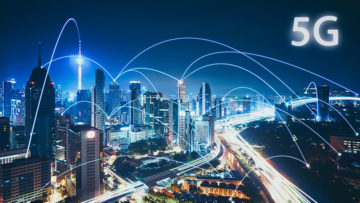 The global association for the mobile industry ecosystem GSMA has announced the formation of what it denotes as a global accelerator initiative to push 5G.
The global association for the mobile industry ecosystem GSMA has announced the formation of what it denotes as a global accelerator initiative to push 5G.
The industry hopes that by 2025, mobile technologies and services will contribute almost $5 trillion to the global economy and that there will be 1.8 billion 5G connections. All this will be based on the claim that stakeholders will benefit from the improvements in productivity and efficiency resulting from the increased take-up of very high-speed mobile services, mmWave is emerging as an important element of the 5G technology mix.
Earlier in 2021, the GSMA thought that one of the key problems for 5G was when 5G mmWave systems could be cost-effective.
5G mmWave uses spectrum resources in frequencies above 24 GHz to complement sub-6 GHz roll-outs and offer the full potential of 5G, delivering increased bandwidth, fast data speeds and lower latency to users, allowing operators to add massive capacity to cellular networks with multi-gigabit wireless speeds and low latency connectivity.
The GSMA capabilities will see use in applications, giving subscribers fast and responsive connectivity in areas such as fixed wireless, enterprise (such as offices and campuses), Ultra HD video, security, precise remote guidance, telemedicine, smart factories and smart ports —it’s hoped. It also particularly benefits densely populated areas – such as campuses and entertainment and sports venues – as it is a cost-effective way to increase network capacity, it’s claimed.
The GSMA adds that a combined mmWave and 3.5GHz network is estimated to contribute savings of up to 35 percent in money terms compared with the sole use of sub-6 GHz bands. It also facilitates the expansion into new areas including Fixed Wireless Access with fibre-like speeds. There are already more than 140 pre-commercial and commercial devices supporting 5G mmWave.
The GSMA-led accelerator initiative will attempt to spearhead projects focused on the exploration of everyday business implementations and increasing education efforts around mmWave benefits.
The outfit claims that 5G os fundamental to Europe achieving climate targets and could reduce EU CO2 emissions by 15 percent by 2030.
It plans to see operators China Unicom, NTT DOCOMO, Telstra, TIM and Verizon, along with technology suppliers Ericsson and Qualcomm Technologies, share mmWave intelligence, best practices and use cases to “educate and inspire” people. The group envisages that this first stage will be completed in time for MWC Barcelona in February 2022, complementing the event’s Connectivity Unleashed theme.
Commenting on the ambitions for the accelerator, GSMA chief technology officer Alex Sinclair said: “We’re excited to be assisting our members and partners in unlocking the huge potential of 5G, of which mmWave is a key element. This GSMA accelerator initiative will demonstrate what harnessing 5G mmWave can achieve and inspire others as to its many benefits.” The use of the word “excited” is almost obligatory in press releases, these days.





